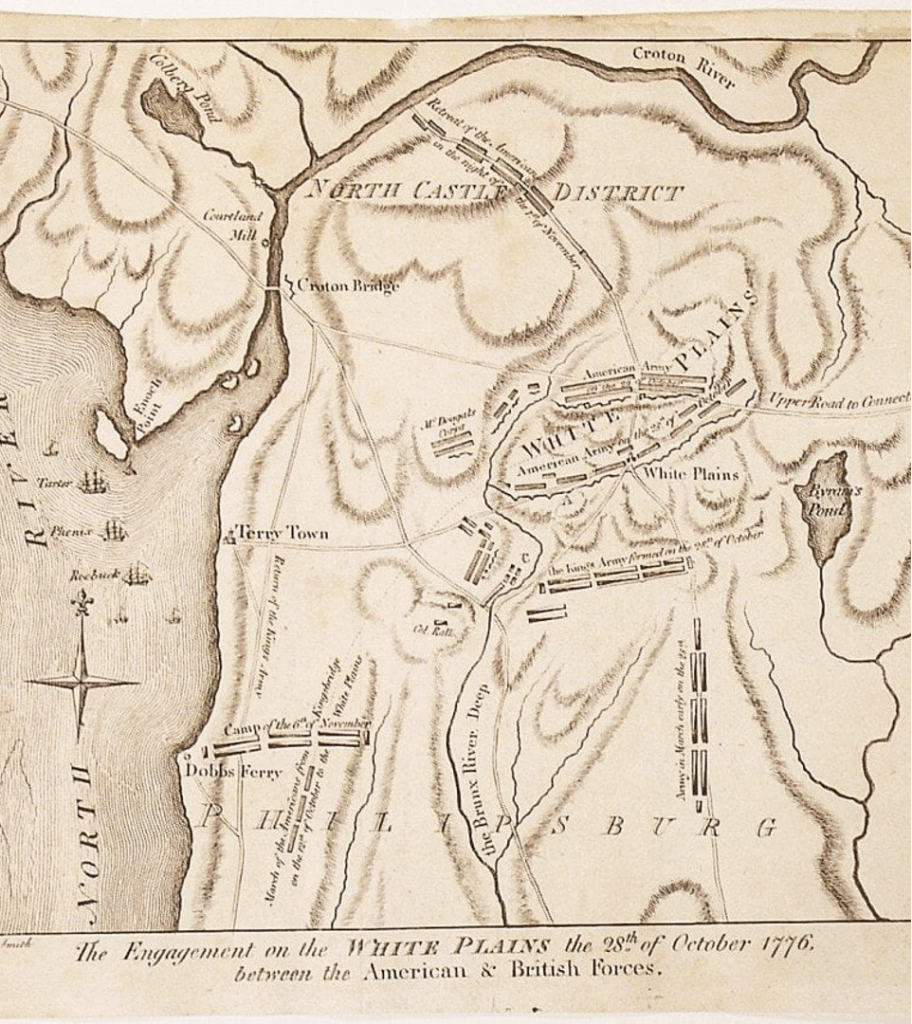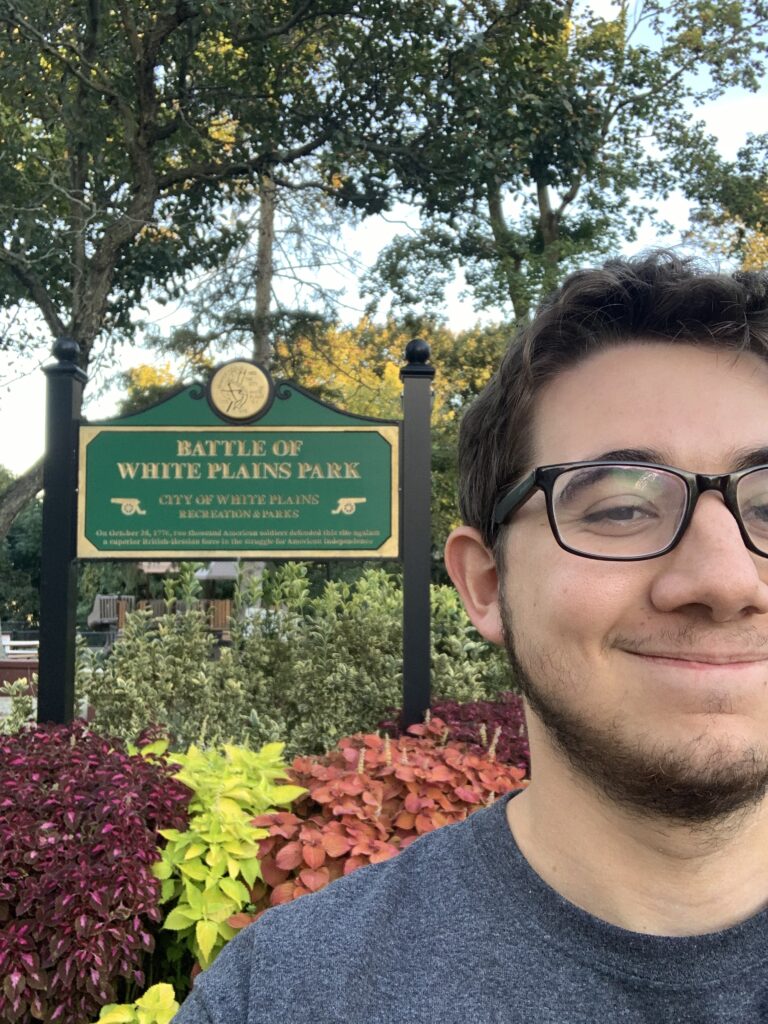
Great military engagements, like Gettysburg, Bunker Hill, or the Normandy Landings, represent major sites of historical reflection and commemoration and can play a central role in shaping national consciousness. But how did smaller communities look back on local battles, including ones that may not have ended in glorious victory? These were the types of questions that FCRH Senior and History Major David Sullivan set out to answer in his research. Inspired by work that he did in Fall 2023 in Professor Robb Haberman’s class “America at War”, Sullivan wanted to look more closely at the commemoration of the Battle of White Plains, a battle in the revolutionary war that produced an early loss for George Washington’s Continental Army in October 1776. Sullivan and Haberman received support from the FCRH Summer Research Program
David’s mentor on the project Dr. Haberman wrote in with some details:
Located in David’s hometown of White Plains, New York, the park commemorates a key Revolutionary War engagement that produced an early loss for George Washington’s Continental Army in October 1776. When our class ended, David expressed an interest in expanding his research on the topic. We agreed that it would be interesting if he explored how the local community remembered this battle in the mid-19th century, with a focus on the commemorative and civic events held during the Mexican-American War, American Civil War, and the Revolutionary Centennial.
David examined newspaper pieces, veterans’ pension applications, commemorative programs, and related ephemera, held in the collections of the Westchester County Historical Society and online databases. From these varied sources, David discovered that contemporary politics and socio-economic developments in White Plains shaped how local citizens understood and publicly commemorated their community’s Revolutionary legacy. At the Research Program final meeting, David presented his preliminary findings in Memories of White Plains: The Battle of White Plains in 19th-Century Memory and received valuable feedback from his peers.
David will continue his project by looking more closely at how local acts of public memory in White Plains intersected with broader events, including westward expansion, military imperialism, the shock of disunion, the ending of slavery, and national reconciliation. He also plans to share his findings with the broader public by submitting a research article to an undergraduate research publication. As we are currently celebrating the nation’s Revolutionary Semiquincentennial, David will also propose a presentation for an upcoming event to be held by the Revolutionary Westchester 250 Association.
Congratulations to David and Dr. Haberman on this project. We look forward to hearing more about this exciting research!

